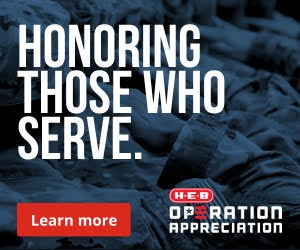MEET A FEW OF THE GENIUSES THAT MADE OPRAH’S FAVORITE THINGS
With brilliant ideas and a whole lot of hard work, these game-changing entrepreneurs have created products that Oprah wants to share with everyone.
Building a business from scratch is hard enough, but the following entrepreneurs managed to launch thriving Black-owned brands despite the odds: While Black people make up 14 percent of the U.S. population, they account for only 2 percent of business owners. (By comparison, white-owned businesses account for 84 percent.) Black-owned enterprises also have a harder time securing capital, either via bank loans or personal investments.
The good news is that recent years have seen a flourishing of Black-owned businesses like never before. A recent Brookings report found the pandemic spurred a surge of new online microbusinesses, with Black owners accounting for 26 percent of that—up from 15 percent pre-pandemic.
The following entrepreneurs overcame obstacles to build brands that increase representation across a wide range of categories, from beauty and fashion to food, with products that were selected as some of Oprah’s Favorite Things 2022. Not only do their efforts broaden cultural understanding and awareness, but their success creates opportunities for the next generation. Meet the Black owners whose creativity and innovation are making an impact far and wide.
Gloria Williams of Footnanny and Bodynanny
Gloria Williams, aka the Footnanny, aka Oprah’s longtime pedicurist, has been a fan favorite on Oprah’s Favorite Things before, thanks to her line of products for the feet. During the pandemic, she noticed how many people were complaining of both pain and exhaustion, and inspiration struck. “It brought back memories of when my mother and I would give neighbors an old-fashioned rubdown to help them feel better after being sick with a cold or just plain old arthritis,” she says.
Her new line, Bodynanny, features salts, soaks, serums, and creams to pamper the entire body—and the soul, too. Raised in a small town in Illinois, Williams says she looks to her ancestors for insight when she needs it: “They taught me the healing powers of relaxing your entire body with warm soaking baths and hot steam showers, followed by the full-body rubdown.”
Grace Eleyae of Grace Eleyae
After a long, bumpy car ride through Kenya caused the hair on the back of her head to break off from the constant friction against the headrest, Grace Eleyae had the idea to create a breathable turban that would minimize hair damage but also be hassle-free. “I wanted to combine function and fashion—the way satin works to protect the hair, but with the style elements of a cap or hat,” she says.
Like many young designers, she debuted her product online, where fans went crazy for the hidden, adjustable drawstrings that allow you to achieve a custom fit and keep the turban in place. Today her brand includes headbands, hair ties, and hats—and it’s quite the family affair. “My whole family—my dad, mom, two sisters, and brother—all help run the business, and have for the past eight years,” she says. Beyond protecting hair, Eleyae says, “we want our customers to feel confident every time they wear one of our products.”
Feven and Helena Yohannes of 2.4.1 Cosmetics
These twin sisters were born in a refugee camp in Sudan to Eritrean parents who had fled their country during a civil war. Eventually, the family made their way to the United States via a green card lottery, relocating to Rochester, New York. As children, they befriended other kids in their neighborhood by giving them makeovers. The importance of beauty and presentation was something they learned at home; every night, they’d watch their mom get ready to work the midnight shift as a nurse, never forgetting to put on lipstick.
They launched their cosmetics company, 2.4.1. Cosmetics, in 2016 because “we noticed the people making beauty products for women didn’t do it from the lens of how we as Black women felt,” says Helena. The line, which includes makeup for all skin tones, is cruelty-, paraben-, and fragrance-free. Each product also comes with an inspiring name, such as Role Model, Honor, and Redemption, because “we wanted the messaging to inspire and empower in an authentic way,” she says. Adds Feven: “When someone purchases our products, we hope they feel respected and cared for because we understand that we rise by lifting one another.”
Jainaba Jeng of Kitchens of Africa
Born and raised in the Gambia, Jeng left to attend college in Nova Scotia. When a military coup in her home country made it impossible to return, she moved to the U.S., where she noticed a lack of authentic African cuisine. “Back home, food was an integral part of my custom, culture, and traditions,” Jeng says. “I grew up eating home-cooked meals packed with flavors, and I was yearning to have them again.” She spent a year researching, developing, and taste-testing authentic African-inspired convenience foods that anyone could enjoy.
Today, with Kitchens of Africa, she has a full line of products filled with the rich, savory flavors of her home continent—and, now, so do the rest of us. “When you taste our foods,” she says, “I hope you feel the warmth, love, and soul of the women of Africa, whom I pay tribute to on the packaging.”
Terri-Nichelle Bradley of Brown Toy Box
As the founder and “principal of play” at Brown Toy Box, Terri-Nichelle Bradley has made it her mission to ensure that Black children grow up seeing themselves positively represented in every space around them—starting with their very first toys. “I want Black children to feel from the start that they can pursue STEAM careers, and I learned quickly that one of the best ways to do that is through play,” says Bradley. Affirming the idea that if you see it, you can be it, she created the Dadisi (Swahili for “curious”) Academy Crew, a group of smart young coders, marine biologists, chemists, and museum curators who feature in her games, puzzles, and toys.
Though she sells her products on Amazon and at other retailers, she has also developed corporate partnerships that help her make sure her toys end up at underserved schools around the country. That’s because, says Bradley, “from the very beginning, I knew I also wanted to serve high-poverty communities and historically Black neighborhoods because those are the kids who always get left out”—though not for much longer, if Brown Toy Box can help it.
Venus Williams of Asutra
The decorated tennis star decided to invest in this brand after using its pain relief cream. Now a part owner (along with CEO and owner Stephanie Morimoto) and chief brand officer, Williams is most proud of Asutra’s commitment to creating products that encourage self-care and use all-natural ingredients. From antioxidant-rich skincare to soothing eye pillows that help promote better sleep to yoga mat cleaners made from essential oils, the line is committed to products that enhance, as Williams has put it, “mind, body, and soul.”














